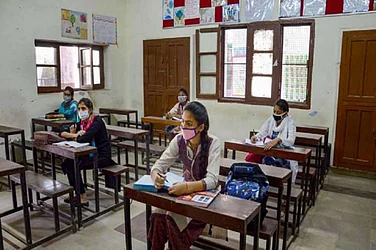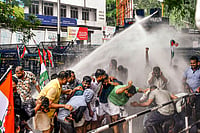The Bihar government on Tuesday warned teachers appointed through Panchayati Raj Institutions(PRIs) of disciplinary action if they organise or participate in any protest against new rules for recruitment in government-run schools.
The state cabinet had on May 2 approved a proposal to recruit 1.78 lakh teachers for primary, middle, and upper schools through the Bihar Public Service Commission.
A day after the council of state ministers green-lighted the proposal, protests started over the modalities of appointments.
Several associations of teachers termed the move as a "clear departure from the current mechanism" and also alleged that it would be against 3.5 lakh PRI teachers in the state.
In a letter sent to district administrations, Additional Chief Secretary Dipak Kumar Singh said, “All district education officers in the state must ensure that disciplinary action should be initiated against teachers, appointed through Panchayati Raj Institutions (PRIs), or its employees who organise or participate in any protest against new rules for the appointment of teachers in government schools."
PRIs are reportedly planning to hold protests against the fresh rules for the appointment of government teachers, he said.
The Bihar State School Teachers (appointment, transfer, disciplinary action and service condition) Rules, 2023 entails a standardised process for the appointment of school teachers, who will have status equivalent to the state government employees, with separate district cadres.
Those appointed since 2006, including PRIs, would also have the option of joining this cadre, but for that, they would also have to appear for exams, which has now become the central point of contention.













.jpg?auto=format%2Ccompress&fit=max&format=webp&w=376&dpr=2.0)












